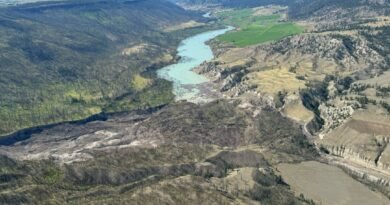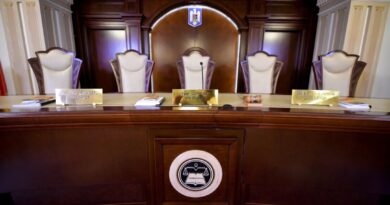Department of Justice Claims Seizure of Venezuelan Leader Nicolas Maduro’s Plane in Dominican Republic by US Officials
The plane utilized by Venezuelan socialist leader Nicolas Maduro was confiscated in the Dominican Republic and handed over to federal authorities in Florida, according to the Department of Justice.
The United States confiscated an aircraft belonging to Nicolas Maduro in the Dominican Republic, alleging that its acquisition violated U.S. sanctions, the Department of Justice (DOJ) announced on Monday.
“This morning, the Justice Department seized a plane we believe was unlawfully purchased for $13 million through a shell company and taken out of the United States for the benefit of Nicolas Maduro and his associates,” Attorney General Merrick Garland stated.
The Dassault Falcon 900EX plane was confiscated in the Dominican Republic and transferred to federal officials in Florida, as stated by the DOJ. U.S. officials revealed that the plane was acquired illegitimately through a shell company and removed from the United States.
“Let this confiscation send a strong message: planes acquired unlawfully from the United States for sanctioned Venezuelan officials cannot simply fly away,” Matthew Axelrod, an assistant secretary at the Commerce Department, mentioned in a statement.
The Venezuelan Embassy in Washington did not immediately respond to a request for comment, and Maduro has not publicly addressed the situation.
The State Department stated that Maduro’s victory announcement “lacked supporting evidence” and that there was “overwhelming evidence … showing that Edmundo González Urrutia received the most votes in Venezuela’s July 28 presidential election.”
A month later, the department asserted that Maduro had resorted to “widespread repression to retain power” amid widespread protests against the election outcome.
Following the election, Maduro implemented a measure that banned access to the social media platform X for 10 days, citing the spread of misinformation about the election. Maduro has criticized Elon Musk, the platform’s owner, calling him a dictator.
The United States has imposed sanctions on 55 Venezuelan-registered planes owned by the state-run oil company PDVSA. It has also offered a $15 million reward for Maduro’s arrest to face federal drug trafficking charges in New York.
“That is false. We have not offered amnesty to Maduro or anyone else since the election,” Patel stated in a news briefing on August 12. “We condemn the escalating violence, unjust mass detentions, and oppression directed at Venezuelans, including members of the democratic opposition.”
Patel added that the State Department is exploring options for a potential peaceful transition of power in Venezuela, but amnesty is not one of them.
“The U.S. is weighing different strategies to pressure Maduro to steer Venezuela back toward democracy and will continue to do so, but the onus is on Maduro and Venezuela’s electoral authorities to disclose the election results,” he remarked.
The DOJ had not responded to an Epoch Times inquiry for comment as of Monday.
This report includes contributions from Reuters and The Associated Press.





